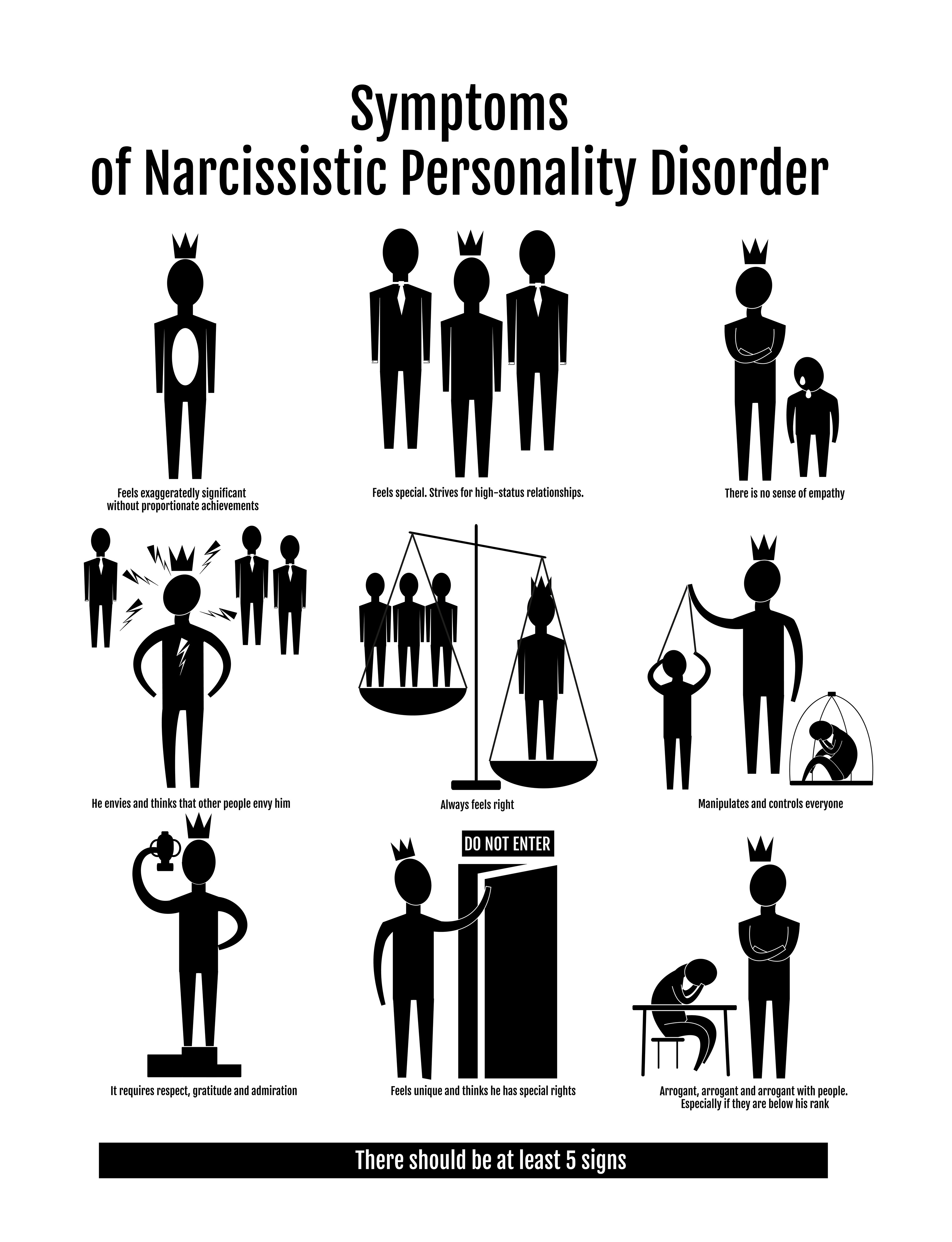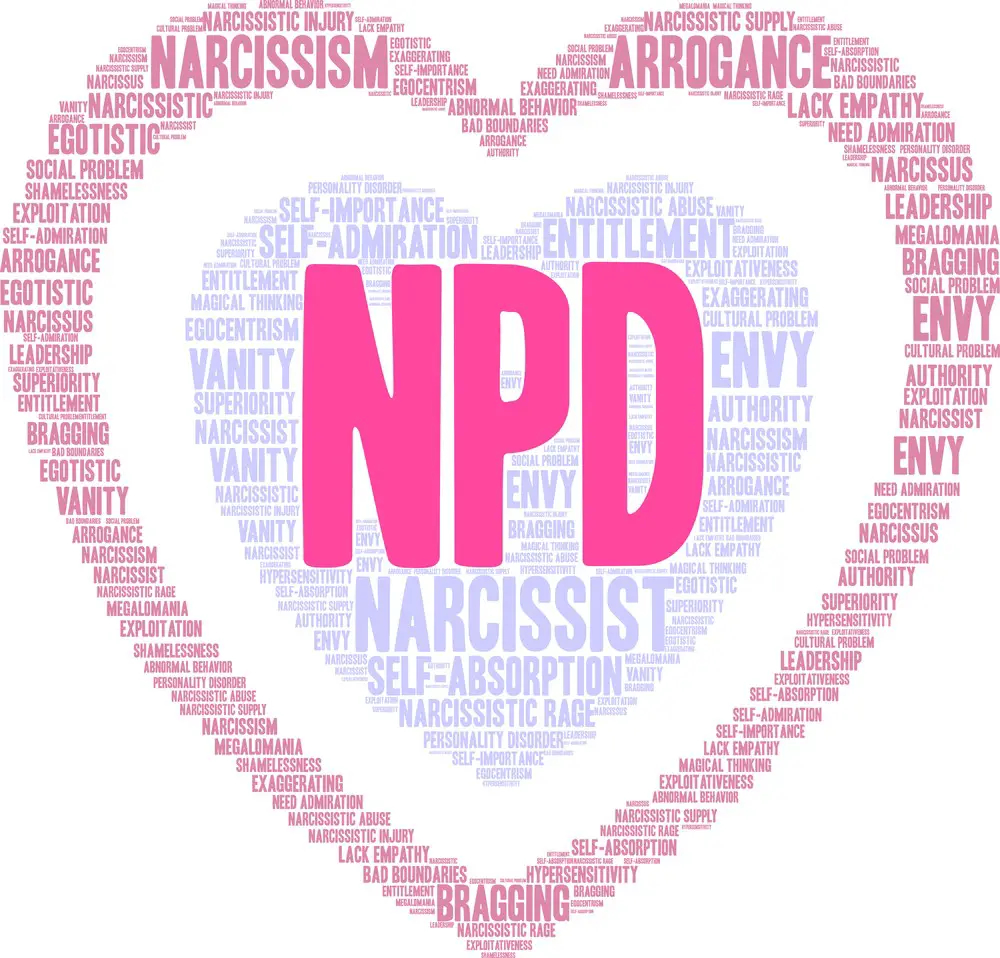As a BetterHelp affiliate, we receive compensation from BetterHelp if you purchase products or services through the links provided
Navigating relationships with a narcissist can be tricky, and when a narcissist chooses to ignore you, it can be especially difficult to understand their behavior and your own emotions. The silent treatment can be one of their primary control strategies, but how long a narcissist will ignore you may vary depending on the individual and the specific situation.
Understanding the reasons and patterns behind the behavior of a narcissist is crucial to coping with their rejecting tactics. Being ignored by a narcissist can have a significant emotional impact on you, and it’s essential to learn how to handle such situations and eventually transition out of a harmful narcissistic relationship.
Key Takeaways
- Narcissist’s silent treatment is a primary control strategy
- Emotional impact can be significant when ignored by a narcissist
- Understanding their behaviors is crucial to coping with and transitioning out of a harmful relationship
 Understanding Narcissist Behavior
Understanding Narcissist Behavior
When dealing with a narcissist, it’s essential to understand their behavior. Narcissists are often known for their manipulative nature, using tactics such as gaslighting to control and confuse others. They may display an inflated sense of self-importance, crave attention, and have little empathy for others.
One common tactic narcissists use is the silent treatment. They may ignore you for extended periods to assert control, punish you, or make you feel insecure. During this time, it’s natural for you to feel frustrated or confused.
Remember that narcissists often lack genuine empathy and have difficulty considering others’ feelings. Their behavior revolves around their needs and desires, which makes maintaining a healthy relationship challenging.
When trying to gauge how long a narcissist will ignore you, there are a few key points to consider:
- Their motivation behind the silent treatment
- The severity of the situation
- Their past patterns of behavior
- Your response to their behavior
Remember, your well-being should always be a priority. Establishing boundaries and recognizing when a relationship with a narcissist is no longer healthy for you is essential.
While every narcissist’s behavior and duration of silent treatment may vary, understanding their manipulative nature can help you navigate these complex situations. Stay true to your values and prioritize self-care as you deal with the challenges posed by narcissistic relationships.
The Role of Ignoring in a Narcissist’s Control Strategy
Power and Control
Ignoring someone is a powerful control tool for a narcissist. When they ignore you, it leaves you feeling anxious and desperate for their attention. You might start questioning your worth and even try to change your behavior to please the narcissist. This further feeds their need for power and control as they revel in your attempts to win their approval.
Punishment and Manipulation
Narcissists use ignoring as a form of silent punishment. They may punish you for standing up for yourself or not complying with their demands. As a result, you might bend to their will to avoid their silent treatment. Ignoring can be a highly effective manipulation tactic, as it can make you more eager to appease the narcissist, reinforcing their authority over you.
Devaluation and Discard
Finally, ignoring is a key component of the narcissistic abuse cycle, which consists of idealization, devaluation, and discard. After idealizing you, a narcissist will systematically devalue you by ignoring or belittling your accomplishments and emotions. Once you’re devalued, they feel justified in discarding you, often for a new supply.
 The Emotional Impact of Being Ignored by a Narcissist
The Emotional Impact of Being Ignored by a Narcissist
Creating Boundaries
Establishing and maintaining boundaries is important when dealing with a narcissist who ignores you. Doing so will protect your emotional well-being and prevent the narcissist from constantly affecting your feelings. Developing healthy boundaries involves recognizing your worth and focusing on your needs rather than constantly seeking validation.
Handling Pain and Anger
When a narcissist ignores you, it can cause feelings of pain and anger. To deal with these emotions effectively, it’s essential to acknowledge and validate them. Consider turning to journaling, physical exercise, or creative outlets as healthy coping strategies. Remember, feeling hurt and frustrated is okay, but it’s crucial to express those emotions constructively.
Seeking Validation
Narcissists often withhold their attention as a form of control, depriving you of validation. It’s natural to crave approval from others, but it’s crucial not to place your self-worth solely in the hands of a narcissist. Look for validation within yourself, focusing on your accomplishments and strengths. Contact supportive friends or family members to share your thoughts and feelings. Remember, whether or not the narcissist recognizes it, you deserve to be valued and acknowledged.
 Unveiling the Narcissist’s Ignoring Tactics
Unveiling the Narcissist’s Ignoring Tactics
Silent Treatment
The silent treatment is a common tactic narcissists use to gain control. They may suddenly stop talking to you, avoid responding to your messages, or even act as if you don’t exist. This behavior can make you feel ignored and confused. It aims to make you question yourself and seek their validation.
Stonewalling
Stonewalling is another way for a narcissist to ignore and manipulate you. They may refuse to engage in conversation, withhold affection, or give you closed-off, one-word answers. This can make resolving conflicts difficult and force you to apologize or concede to their demands to end their silence.
Love-Bombing
Narcissists may use love-bombing to draw you back when they feel they’re losing control. Love-bombing consists of showering you with affection, compliments, and gifts. The sudden shift from ignoring to intense adoration can be confusing, but remember that the goal of this tactic is to keep you dependent on their emotional validation.
Hoovering
Hoovering is another technique narcissists employ when they are desperate for a narcissistic supply. This tactic could involve reaching out to you after ignoring you, offering apologies, or professing their love. They may even promise to change their ways. Beware of this manipulation, as it is often a temporary ruse to regain control over you.
Coping Mechanisms When Ignored by a Narcissist
When you experience being ignored by a narcissist, it’s essential to prioritize your well-being and self-preservation. Here are some useful strategies to help you cope and move forward:
- Seek support: Turn to trusted friends and family who understand your situation. Share your feelings and experiences with them so you don’t feel alone in this journey. They can offer valuable advice, encouragement, and a listening ear.
- Engage in therapy: A mental health professional, such as a therapist or counselor, can provide the tools and guidance to navigate the complexities of dealing with a narcissist. They can also help you rebuild your self-esteem.
- Focus on self-esteem: It’s important to remind yourself that your worth is not tied to the narcissist’s opinion of you. Practice self-affirmations, engage in activities you enjoy, and celebrate your accomplishments.
- Set boundaries: Establishing clear boundaries is essential for your self-preservation. Communicate your limits to the narcissist and enforce them. You might need to distance yourself physically or emotionally to protect yourself from their harmful behavior.
- Explore new connections: As the narcissist may be ignoring you in search of a new source of supply, use this time to strengthen existing relationships or forge new connections. Surround yourself with positive influences that appreciate and value you.
By prioritizing your mental health and self-preservation, you can gradually heal from the emotional turmoil caused by a narcissist’s neglect. Remember, you deserve respect and support in your relationships.
The Narcissist Checklist: Signs You’re Dancing with a Devil in Disguise
When you’re involved with a narcissist, it can sometimes feel like you’re in an emotional labyrinth, never quite sure which twist or turn to take. Recognizing the signs can be the first step to navigating your way out. Here’s a checklist to help you spot a narcissist in your life:
- Center of the Universe: Everything revolves around them. They monopolize conversations and become impatient if the topic shifts away from them.
- Empathy Drought: An obvious lack of empathy, often paired with a sense of entitlement and disregard for other people’s feelings and needs.
- Mirror, Mirror: An excessive need for admiration and validation but a reluctance to provide the same in return.
- Reality Distortion: They are masters at gaslighting, making you question your perception of reality.
- The Blame Game: It’s always someone else’s fault, never theirs. They have an excuse ready to deflect any blame if something goes wrong.
- The Silent Treatment: Regularly using silence as a control tactic, leaving you feeling lost and confused.
- Emotional Rollercoaster: Frequent mood swings, with bursts of rage or exaggerated euphoria, making it difficult to predict their behavior.
- Jekyll & Hyde: They can switch from being charming to cold in a heartbeat, depending on whether they need something from you.
- Me, Myself, and Lies: Regular dishonesty or exaggeration, especially when it makes them look good.
- High-Maintenance: A constant need for attention and emotional support, but rarely, if ever, reciprocating.
If you find yourself nodding to many of these points, it may be time to take a step back and assess the health of your relationship. Remember, seeking help and making a change is never too late.
 When to Wave the White Flag: Signs It’s Time for Therapy
When to Wave the White Flag: Signs It’s Time for Therapy
Navigating life’s ups and downs can sometimes become too overwhelming to handle alone. Therapy isn’t a sign of weakness but an empowering move towards reclaiming your well-being. So, how do you know when to seek professional help? Here’s a quick guide:
- Constant Emotional Turmoil: If you’re perpetually sad, anxious, or angry, and these emotions affect your daily activities, it’s a signal.
- Relationship Woes: Struggles in relationships often reflect internal difficulties. If you’re constantly at odds with friends, family, or partners, therapy can help you explore the reasons.
- Sleepless Nights: A disrupted sleep pattern is often a cry for help from your subconscious mind.
- Habits Go Haywire: Overindulgence in food, alcohol, or other substances as a coping mechanism is a red flag.
- Performance Pitfall: A noticeable drop in productivity at work or school could indicate underlying issues that therapy could help unearth.
- Decision Paralysis: If you find it overwhelmingly difficult to make even small decisions, it could be time for help.
- Past Trauma: If past experiences or traumas continue to haunt you and affect your current life, it’s time to unpack that baggage with a professional.
- Self-Sabotage: Continuously undermining your efforts? Therapy can help you understand why.
Measuring the Milestones: Signs of Progress in Therapy
Once you’ve taken the brave step to seek help, it’s natural to wonder, “Is this even working?” Therapy isn’t always a straightforward journey, but here are some indicators that you’re on the right path:
- Emotional Vocabulary: You start having a richer, more nuanced way to describe and understand your feelings.
- Awareness Spike: You become more aware of your thoughts, emotions, and triggers, almost like you’ve developed a sixth sense.
- Healthier Boundaries: You find it easier to say no, stand up for yourself, and define what’s acceptable in relationships.
- Coping Toolbelt: You’ll notice that your coping mechanisms are less destructive and more constructive.
- Action Over Reaction: Instead of impulsively reacting to situations, you consider the best course of action.
- Reduced Symptoms: Whether it’s insomnia, anxiety, or emotional eating, a decrease in symptoms is a great indicator of progress.
- Renewed Hope: As you work through issues, a sense of hope and optimism naturally emerges, even in the face of challenges.
- Feedback Loop: Your therapist or counselor should be helping you set and track achievable goals, giving you a tangible sense of progress.
If you do not see these signs of progress after a fair period, it might be worth revisiting your therapy approach or considering a different therapist. Remember, the journey to better mental health is a marathon, not a sprint. Stay committed to your well-being!

Love’s Red Flags: Signs It’s Time to Bid Adieu to the Relationship
Ending a relationship can be daunting, filled with questions and uncertainties. But sometimes, the writing’s on the wall; you must be brave enough to read it. Here are some unmistakable signs that it’s time to consider saying goodbye:
- Walking on Eggshells: If you constantly feel you must tiptoe around your partner to avoid conflict, that’s a glaring sign that something’s off.
- Vanishing Intimacy: When the emotional or physical closeness you once cherished starts to fade, and efforts to revive it go unanswered, it’s a wake-up call.
- Serial Dishonesty: A pattern of lies and deceit isn’t just a character flaw; it’s a betrayal that undermines trust, a crucial relationship foundation.
- Abusive Behavior: Whether verbal, emotional, or physical, abuse is an absolute deal-breaker. Period.
- Feeling Drained: Relationships should be a source of support and joy. If your partnership leaves you consistently drained, you’re likely better off alone.
- Unilateral Decisions: If your partner regularly makes significant life choices that affect you both without any discussion or input from you, that’s a glaring imbalance.
- You’re Not a Team: Partnerships require teamwork, whether facing life’s challenges or planning a Friday night. If your partner is a constant solo act, you’re not in a true partnership.
- Constant Criticism: Constructive feedback is one thing; constant, unrelenting criticism that erodes your self-worth is another.
- Neglected Needs: If your emotional or physical needs are continuously dismissed or ignored, that’s a relationship you can do without.
- No Shared Future: If you’ve reached a point where you can’t imagine or plan a shared future, it’s probably because, deep down, you know there isn’t one.
- Your Gut Says So: Sometimes, you’ve got to listen to that inner voice. If your gut shouts that it’s time to leave, it might be worth tuning in.
Ending a relationship is never easy, but it’s often a necessary step toward finding a more fulfilling, respectful, and loving partnership. Take a deep breath, trust your instincts, and don’t be afraid to make the choices that are right for you.
 Transitioning Out of a Narcissistic Relationship
Transitioning Out of a Narcissistic Relationship
Identifying a relationship with a covert narcissist can be challenging, but taking the necessary steps to move on once you do is crucial. Breaking free from a narcissistic relationship can be emotionally challenging and empowering. Further down below are some red flags to watch out for, tips on when to seek therapy, and how to move forward. Keep these things in mind as you navigate through this difficult process.
First, accept that your emotional well-being and self-esteem matter. It’s normal to feel guilt, confusion, or a sense of obligation towards your partner, but remember that ending a toxic relationship is an act of self-care. You deserve to be in a healthy, loving, and supportive partnership.
Communicate your decision to end the relationship clearly and assertively. It’s important to be honest with the covert narcissist about your feelings and the reasons behind your decision. However, try to keep the conversation as brief and straightforward as possible to prevent the narcissist from manipulating the situation.
Establish boundaries with the narcissist. This may include physically separating yourselves, cutting off communication, and informing friends and family of your decision. The narcissist may try to win you back through charm, promises of change, or guilt-tripping, but stay firm in your resolve to move on.
Seek support from friends, family, or support groups. They can provide a safe space to share your feelings, help you build your self-esteem, and offer advice from their experiences. Surround yourself with those who genuinely care about your well-being.
Focus on healing as you slowly detach yourself from the relationship. This may involve attending therapy, journaling, or engaging in activities that bring you joy and foster personal growth. Give yourself the time and space to rediscover your passions and strengths.
Remember, moving on from a relationship with a narcissist can be lengthy, but there is light at the end of the tunnel. Embrace the new opportunities that await you and enjoy the journey to a healthier, more fulfilling life.
Frequently Asked Questions
How long can a narcissist give someone the silent treatment?
A narcissist can ignore you or give you the silent treatment for varying lengths, ranging from a few hours to weeks. It depends on the individual and the situation they are in. It’s important to remember that when a narcissist ignores you, it’s usually about asserting control and not a reflection of your worth.
What happens when a narcissist ignores text messages from you?
When a narcissist ignores your text messages, they may attempt to manipulate you, seek attention, or punish you for perceived rejection. It’s crucial not to take their behavior personally and consider alternative means of communication if necessary.
How should you respond when a narcissist ignores you?
When a narcissist ignores you, it’s often best to maintain calm, set firm boundaries, and react without emotions. You can also consider seeking support from friends, family, or a mental health professional, as dealing with narcissistic individuals can be extremely challenging emotionally.
What leads a narcissist to push people away despite needing attention?
Narcissists may push people away due to their deep insecurities and fear of intimate connections. Their need for attention often clashes with their inability to trust and maintain healthy relationships, leading them to distance themselves from others, even if it contradicts their desire for validation.
How long do narcissists usually punish someone they care about?
A narcissist’s “punishment” can vary greatly based on individual circumstances and severity. It may last from a few hours to weeks or even longer. Remember that this behavior is an unhealthy and manipulative method to assert control over others and has little to do with your actions or worth.
Will a narcissist ever stop ignoring you after a breakup?
A narcissist can stop ignoring you after a breakup, but this may not always be true. Their decision might depend on their need for attention, control, or a desire to “win” the breakup. It’s essential to prioritize your well-being, focus on healing, and set healthy boundaries regardless of your actions.
The Man Behind the Words: Jacob Maslow – Walking Through Fire, Finding Light
Hey there, I’m Jacob Maslow. On paper, I’m a therapy veteran and an advocate for mental well-being—yes, Lexapro and I are pretty tight. In life? I’ve navigated the labyrinthine twists of loving a narcissist. My ex-wife’s affinity for chaos knew no bounds, from chasing affairs with community bigwigs to her relentless smear campaigns. She’s holding our kids hostage in an ongoing court battle, refusing basic communication despite court orders. It’s the shadow side of aging, as her narcissism scales up while her physical beauty wanes.
To clear my head and find balance, I take long walks—seriously, we’re talking Forrest Gump level. In between steps, I write. I dive into topics like mental health and narcissism, sharing insights to help those caught in similar webs. I also run a legal advice site to help folks fight the uphill battle of non-compliance in custody cases.
If there’s one thing I want you to take away, it’s this: You can beat your mental health issues and navigate the complex world of narcissistic relationships. Stick around. We’ve got a lot to talk about.
- 7 Ideas to Help You Relax and Unwind on a Family Vacation - April 27, 2025
- How Having Cybersecurity Protection Helps You Relax - April 25, 2025
- 8 Reasons Why Spending Time Outside Calms You Down - April 25, 2025
This site contains affiliate links to products. We will receive a commission for purchases made through these links.


 Understanding Narcissist Behavior
Understanding Narcissist Behavior The Emotional Impact of Being Ignored by a Narcissist
The Emotional Impact of Being Ignored by a Narcissist Unveiling the Narcissist’s Ignoring Tactics
Unveiling the Narcissist’s Ignoring Tactics When to Wave the White Flag: Signs It’s Time for Therapy
When to Wave the White Flag: Signs It’s Time for Therapy Transitioning Out of a Narcissistic Relationship
Transitioning Out of a Narcissistic Relationship
